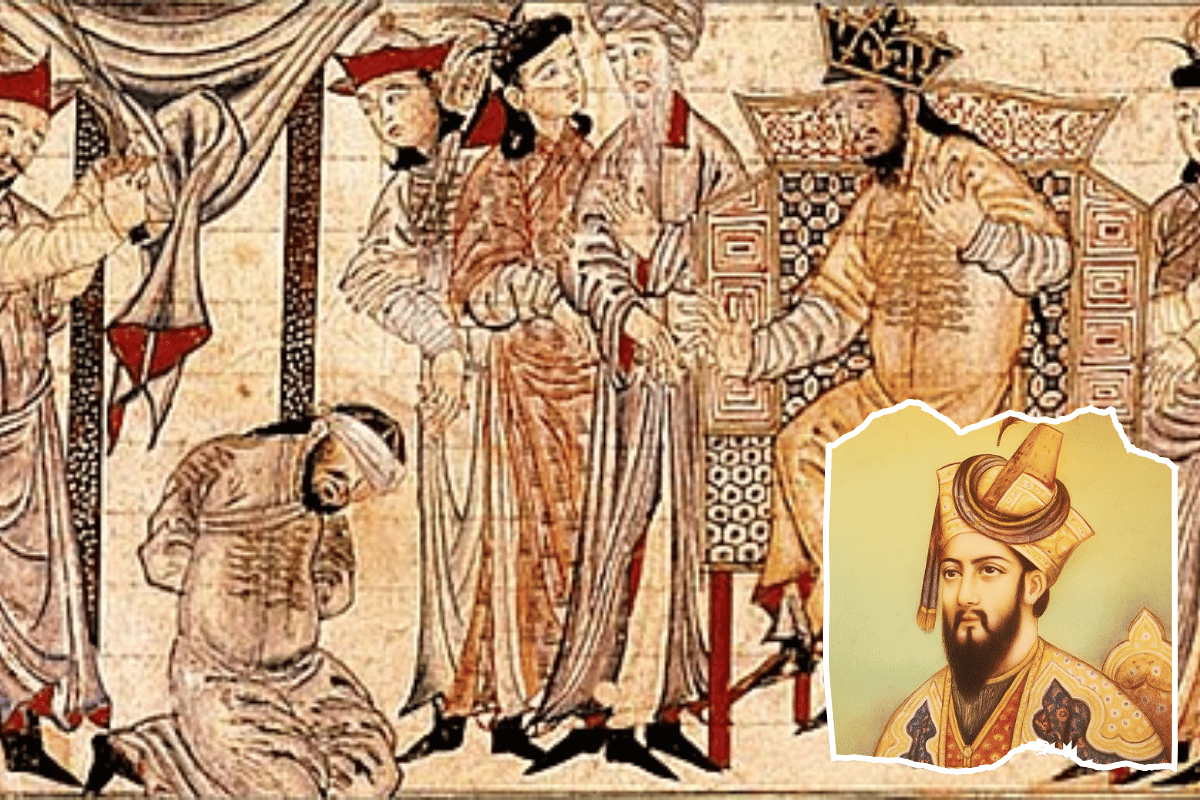
INSIGHT UK is raising awareness about the persecution of Hindus in Pakistan, Afghanistan, Bangladesh, and in some states of Bharat. The terrible stories of persecution which began decades ago, continue to this day. This can be seen by the very fact that the population of Hindus and other minorities in these three countries has declined drastically over the years, while the minuscule remaining population faces atrocities on a daily basis. In this article INSIGHT UK aims to highlight the persecution faced by the minorities in these countries, why it matters and what can be done to help the situation.

Pakistan
Pakistan i.e., erstwhile Bharat, is the land created purely on Hindu hatred. Post-independence, Bharat and Pakistan signed the Nehru-Liaquat Ali pact in 1950 under which protection for minority rights in Pakistan was guaranteed to avert war against its violation. While Bharat still adheres to it, Pakistan violated the said pact immediately after six months by persecuting its first Law Minister Mr. Jogindernath Mandal, a Hindu by religion who was forced to resign on 08th Oct 1950 for raising the ongoing Genocide and persecution of Hindus in West Pakistan. The Minister later took refuge and lived in exile in India after Liaquat Ali Khan issued an arrest warrant against him. The condition of the minority population is no better today, if we only talk about 2022, the table below presents a grim situation:
Crimes against religious minorities in Pakistan in 2022
Bangladesh
It seems like it is a crime to be a Hindu in Bangladesh, Bharat’s neighbour on the Eastern border. Attacks on Hindus in Bangladesh are not isolated incidents but part of an ongoing genocide against Hindus.
The persecution of Bangladeshi Hindus—attacks, killings, rapes, forced conversions and displacement from properties—is designed to terrorize Hindus and eventually drive them out of the country. The genocide commenced with the Noakhali incident in 1946 where hundreds of Hindus were killed and thousands forcibly converted to Islam.

Hindu Refugees
The persecution continued through the years and reached a pinnacle during the Bangladesh Liberation War in 1971 when over 3 million were killed, mostly Hindus. The population of Hindus has declined from 19.6% in 1971 to 14.6% in 1974, 11.7% in 1991, 10% in 2001 and is estimated to be just about 8% in 2022.
12.5m of Hindus fled from East Pakistan between 1950-1971 and between 1974-2016, an estimated 15m Hindus have left Bangladesh. In 2022 alone, 154 Hindus were murdered, 39 minority women were raped (27 gang-raped), 849 received death threats, murder attempts were made on 424 persons, 572 families were evicted from their homes, 319 families and temples were looted, 173 businesses vandalized and 791 minorities were arrested on false blasphemy charges. A study by Prof. Abul Barakat of Dhaka University’s Department of Economics indicates that at this rate of exodus and persecution, there will be no Hindus left in Bangladesh by 2050.
Afghanistan
Once home to a thriving and ancient population of Hindus (and later Sikhs) dating back to the Indus Valley Civilization, Afghanistan is now under Sharia law with a minority (non-Muslim) population of less than 1%.
In the 1970s, over 700,000 Hindus and Sikhs resided in Afghanistan, this number is now in a few hundred. Afghanistan has established Islam as the state religion and the government and the legal system continue to discriminate against non-Muslims. The minority population remains marginalized and is subject to violence and harassment on a daily basis. For example, in March 2020, an attack by terrorists on a Sikh Gurdwara in Kabul killed 25 people and injured 8. The very next day, the cremation ceremony of 25 victims was also attacked, highlighting the dangerous situation.
After the change in regime in August 2021, the Taliban government gave security assurances to the Hindu and Sikh communities, but all in vain. In June 2022, a fortified attack was carried out on a Sikh Gurdwara in Kabul. At least two persons were killed – a Sikh worshipper and a member of the de facto security forces, and seven others were injured. Bharat, which is a natural home to all the Hindus and Sikhs now has 20,000 Afghan Sikhs, while less than 100 remain in Afghanistan.
Why it matters
As elucidated above, Hindus suffer daily state-sponsored human rights violations in Pakistan, Afghanistan and Bangladesh. They endure systematic persecution without support from the local or international community who often fatally minimise or ignore their plight. This apathy and wilful ignorance have serious religious freedom and human rights ramifications.
Islamic extremism and its intolerance to Hinduism and all other faith groups pose a very real global threat, including the UK. The rapid proliferation of this dangerous ideology has had spillover effects, the likes of which were witnessed in Leicester. Hindus were threatened and brutally assaulted, their homes were criminally targeted and Mandir’s were vandalised by Islamists. Yet, British news media platformed known extremists, propagated their false narrative and victim-blamed Hindus. It was not until Bharat’s news media exposed the persecution of Hindus and the true origins of the violence that the prevailing narrative began to change. This demonstrates that Hindus can effectively leverage their power to assist those without it. Hindus are empowered when they stand in solidarity with one another.
There is undoubtedly strength in unity. If Hindus were to collectively advocate for their persecuted brothers and sisters in the subcontinent, individuals and organisations with meaningful power and influence would be compelled to act. Those who consider themselves Hindu and see value in the Hindu way of life must also be prepared to defend Hinduism when it is threatened. If Hindu persecution remains unchallenged, more atrocities will be committed which will lead to the eventual disintegration of the community, the displacement of Hindus, the destruction of a vibrant culture and the loss of ancient Vedic civilisational wisdom.
Hinduism teaches that the Divine is equally present in all. Because all beings are connected through this inherent divinity, prejudice and discrimination against anyone violates this most profound and fundamental teaching. Whilst Hindu persecution is wholly objectionable and ought to be combated by the international community irrespective of their faith background, it is incumbent upon the global Hindu community to uphold the core principles of their faith and ensure that the moral duties of selflessness and mutual respect are being adhered to, particularly when it comes to fellow Hindus. Lest we forget, cowardice is itself seen as Adharma in Hindu teachings.
To turn a blind eye to the suffering of fellow Hindus is a colossal moral failing that ultimately renders us vulnerable to the same threat.
‘The pain of a Hindu anywhere is the pain of Hindus everywhere.’
What can be done?
In essence, we would like to highlight the miserable and dangerous situation of the minorities in Afghanistan, Bangladesh and Pakistan and would like your support in the following ways:
- Amplify the plight of persecuted Hindus in all ways you can including on social media
- Please write to your respective local MP and politicians asking them to raise their voices against the persecution of Hindus in these three Islamic nations. With the economy in dire conditions, geo-political pressure from Europe and other nations would put some pressure on these countries
- Please make your family and friends aware of the situation and teach them about Hindu Dharma and traditions. Most of the time, it is seen that Hindus are oblivious to the problem until it is too late, which then subsequently results in mass exodus and genocide of Hindus. Along with these countries, this can also be seen in some parts of Bharat such as Kashmir, North-Eastern states and a few other border districts of West Bengal and Assam
- Support legislation such as the Citizenship Amendment Act. This act tracks the Citizenship status of the persecuted minorities from these three countries who entered Bharat on or before 2014
- There is a self-sustaining economic ecosystem of Halal certification. Halal economy is greater than that of Bharat’s economy and you and I could be indirectly contributing to it when we purchase any Halal certified product or food. The funds raised are often used in anti-Hindu activities such as forced conversions and providing legal aid to terrorists. We would request you boycott Halal products and buy any non-Halal alternative of the same
- Last but not least, volunteer and donate to charities working to improve the situation
References
- https://www.oneindia.com/feature/what-happened-to-hindus-sikhs-in-pak-3523935.html?story=2
- https://www.hinduamerican.org/wp-content/uploads/2020/07/Human-Rights-in-Afghanistan-Bangladesh-and-Pakistan.pdf
- https://www.hinduamerican.org/blog/5-things-about-hindus-sikhs-afghanistan
- https://euaa.europa.eu/country-guidance-afghanistan-2023/3143-hindus-and-sikhs#:~:text=The%20numbers%20have%20steadily%20decreased,beginning%20of%20the%20same%20year
- https://swarajyamag.com/context/slowly-but-surely-india-has-become-the-biggest-home-for-afghan-sikhs
- https://swarajyamag.com/world/terror-timeline-attacks-on-hindus-in-bangladesh-are-not-isolated-incidents-but-part-of-a-continuous-hindu-genocide
- https://hindupost.in/world/bangladesh/2022-report-on-minorities-bangladesh/
- https://hindupost.in/world/fall-in-bangladeshs-hindu-population-confirms-ongoing-gradual-genocide/
- https://bbs.portal.gov.bd/sites/default/files/files/bbs.portal.gov.bd/page/b343a8b4_956b_45ca_872f_4cf9b2f1a6e0/2023-09-27-09-50-a3672cdf61961a45347ab8660a3109b6.pdf
- https://www.news9live.com/knowledge/list-of-indian-states-where-hindus-are-in-minority-check-details-here-169441
- https://www.opindia.com/2022/07/sharia-constitution-demography-change-hindu-muslims/









